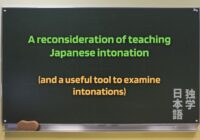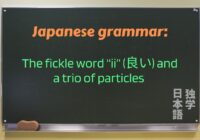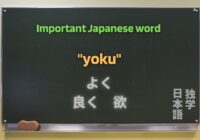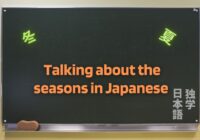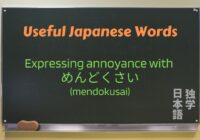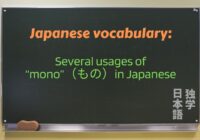A reconsideration of teaching Japanese intonation (and a useful tool to examine intonations)
Japanese intonation, in a nutshell, consists of a series of high and low pitches, where each word has a characteristic pattern of these high and low pitches. There are words where the pitch rises, words where the pitch falls, as well as where the pitch both rises and falls. When a word is said in… Read More »
